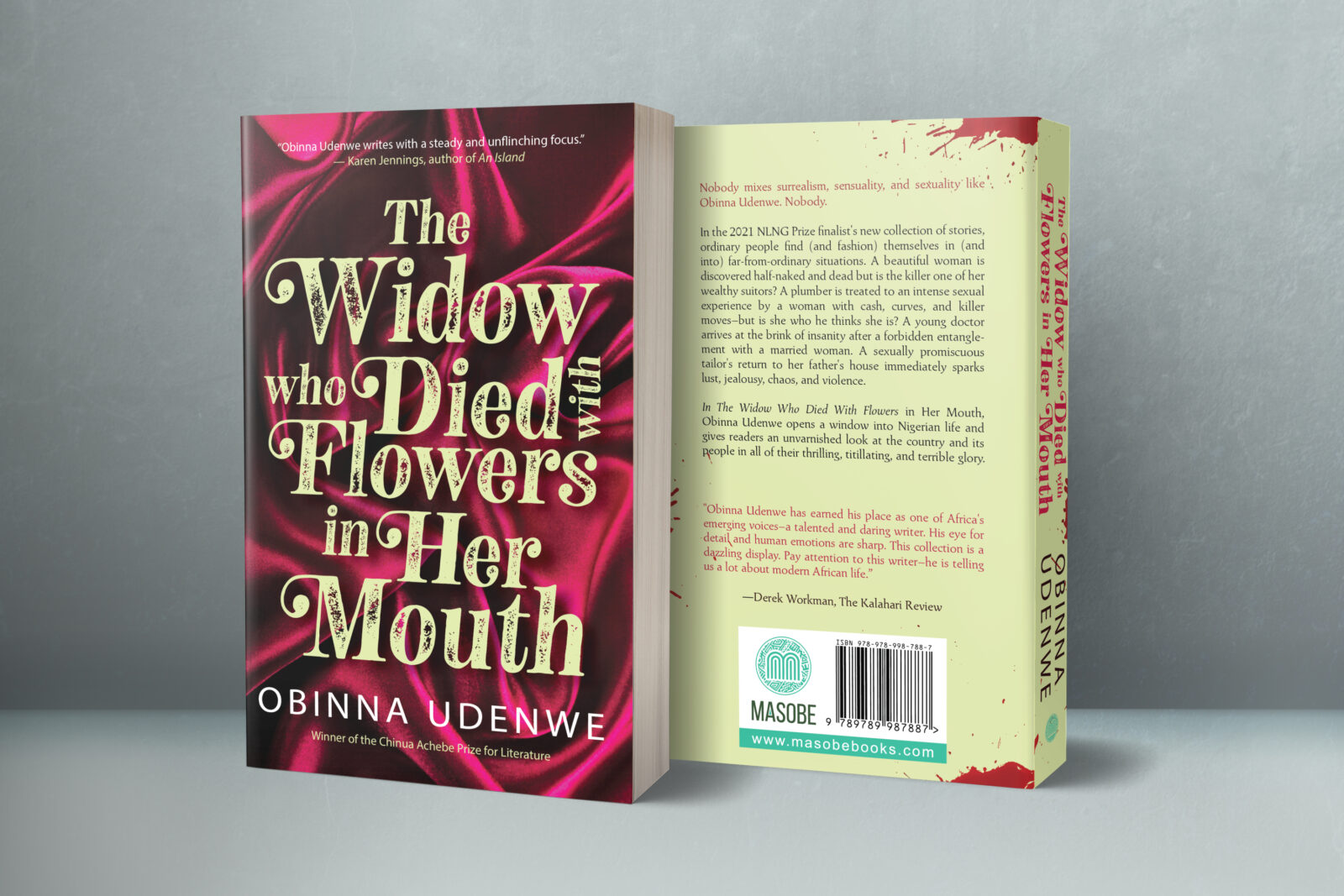
Written by Eghe Idada
Obinna Udenwe’s The Widow Who Died with Flowers in Her Mouth is a surreal, and provocative collection that explores the intersections of death, desire, madness, and mystery in contemporary African society. With bold, imaginative storytelling, Udenwe crafts stories that are unsettling yet captivating—featuring bizarre deaths, erotic entanglements, and characters caught in moments of psychological or cultural crisis. Each story stands alone, but together they form a haunting portrait of a world where reality constantly shifts and nothing is ever quite as it seems.
From the very first story, John 101 or The New Ridiculous Way to Commit Suicide and Become Famous, I was hooked. I laughed, I exclaimed “excuse me?!” out loud, and I kept imagining what would happen if this were to play out in real life. Would it spark a revolution here in Nigeria? Honestly, I doubt it—but the sheer absurdity and brilliance of it made it one of my favourites. And Doris? Baby girl, what made you think you could stop him? Lmaooo. That part was just too hilarious.
With bold, imaginative storytelling, Udenwe crafts stories that are unsettling yet captivating—featuring bizarre deaths, erotic entanglements, and characters caught in moments of psychological or cultural crisis.
It Has to Do with Emilia was quietly heartbreaking—I loved it, especially because I didn’t see that ending coming. I was left asking the same questions Temitayo had. And the titular story, The Widow Who Died with Flowers in Her Mouth, left me gasping. So many beautiful, layered stories in this collection. I honestly can’t believe I had this book for over a year without reading it. I struggled to get past the first page initially, and now I’m wondering… how?! That opening story alone was gold.
There isn’t a single bad story here—well, maybe the last one, Everything is Not Enough. It’s not bad per se, but the way Udenwe chose to tell it didn’t sit well with me. The portrayal of the overly educated woman rubbed me the wrong way.
The characters across the collection are well-written and engaging, each pulling you deeper into their respective stories. Udenwe masterfully explores themes like:
- Surrealism & Dark Humor – particularly evident in The Housekeeper.
- Death as Spectacle & Mystery – where death isn’t just final; it’s symbolic, enigmatic, even theatrical.
- Eroticism & Power in Ordinary Lives – seen through promiscuous tailors, aroused plumbers, and lovers teetering on the edge of madness.
Yet, the one theme that connects all these stories is death. Whether metaphorical, mysterious, or mundane, it looms over every story.
This collection is for everyone. Seriously. If you’re a lover of layered storytelling that balances mystery with meaning, pick this up.
Structurally, Udenwe blends long-form short stories—some almost novella-like—with a style that’s cinematic, deliberate, and immersive. He doesn’t rely on shock factor. Instead, he lures you in with strong openings, vivid twists, and slow-burning tension. He doesn’t hand you the answers either—you’re left to piece things together, to interpret and reflect. The genre-bending nature of the book—mixing thriller, noir, speculative fiction, and literary elements—makes it even more exciting to read.
This collection is for everyone. Seriously. If you’re a lover of layered storytelling that balances mystery with meaning, pick this up. My only problem with this book? Trying to pick a favourite story. It’s just that good.
You can buy The Widow Who Died with Flowers in Her Mouth HERE
